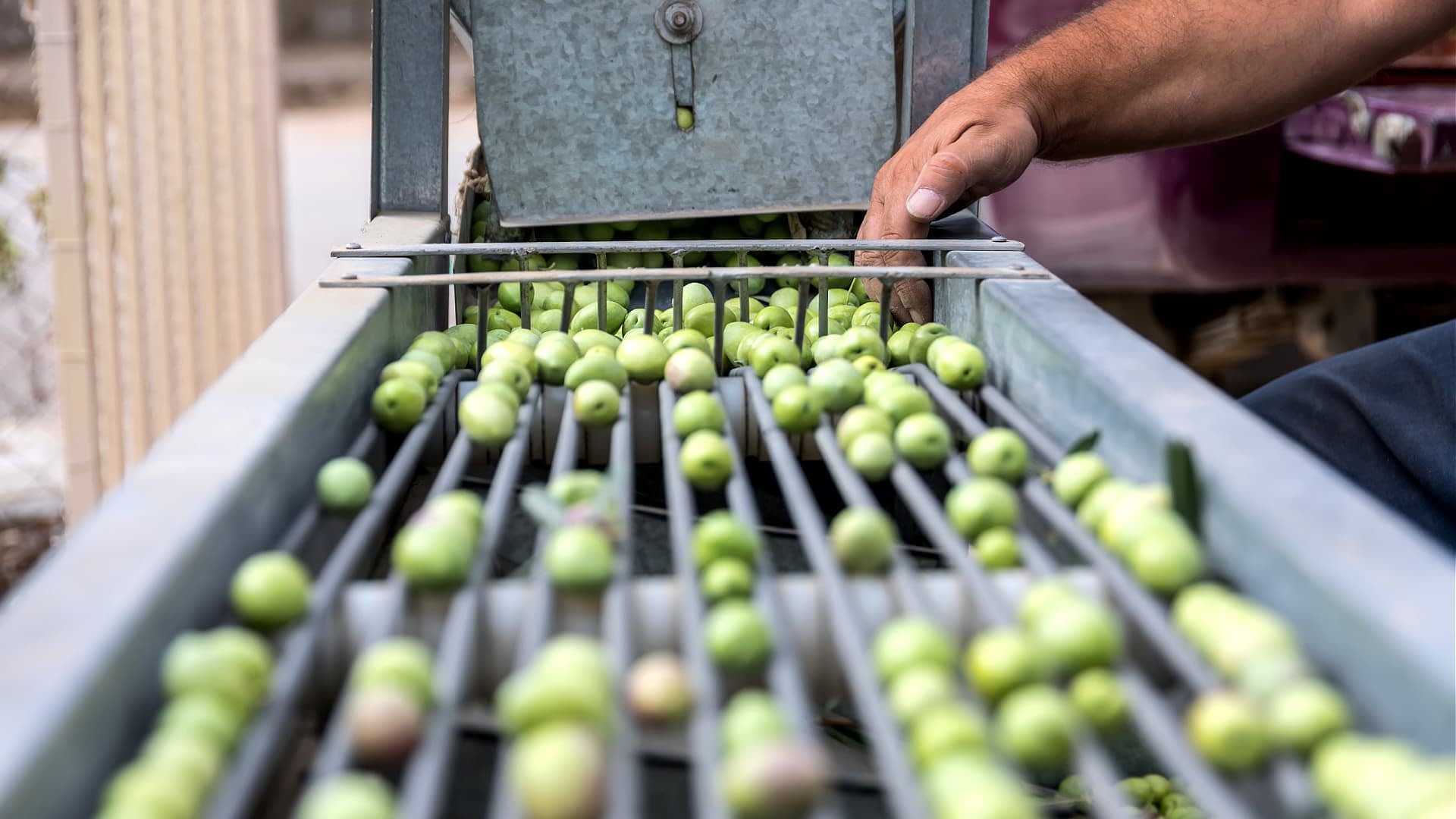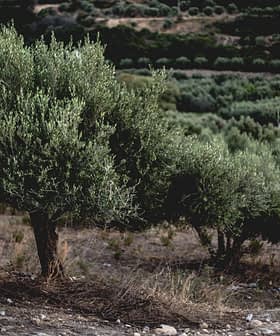Climate Change Threatens Chalkidiki Table Olive Producers, Research Indicates
Despite a fruitful crop year, the future of Chalkidiki olives is threatened as winter temperatures rise and precipitation falls.
 Olives harvesting in a field in Chalkidiki, Greece
Olives harvesting in a field in Chalkidiki, Greece New research from the Aristotle University of Thessaloniki has found that the emerging, climate change-fueled weather pattern in the northern Chalkidiki peninsula in Greece could jeopardize the region’s olive farmers.
The research, funded by the Chalkidiki Chamber of Commerce, documented the changes in the region’s ambient temperature and precipitation levels and examined their impact on olive trees.
The rise in temperature, the decrease in rainfall, as well as the need for water, (which is) particularly important for olive cultivation, portend a bleak future for the olive cultivation in Chalkidiki.
According to Christina Anagnostopoulou, a professor of climatology at Aristotle University who led the research, Chalkidiki is becoming warmer and drier, disrupting the existing pattern of olive cultivation on the peninsula.
“Our study examined the consequences of climate change on the olive cultivation of Chalkidiki,” Anagnostopoulou told Olive Oil Times.
See Also:Chalkidiki Table Olives Hit by Hail Ahead of Harvest“We found that the average temperature in the region has increased by around 1.5 ºC since the 1980s, mostly in the southwest part of the region,” she added. “According to the worst-case scenario, summer temperatures will increase by 2.5 ºC to 3.0 ºC, while a milder increase of 1.5 ºC is expected in winter time in the next decades.”
The professor explained that unnaturally warm winter weather can severely hamper the fruiting of olive trees.
“Olive trees require special cooling conditions during the winter in order to break bud dormancy,” she said. “In warm years, the absence of proper cold winter weather leads to reduced flowering in the spring and consequently to a reduced yield at harvest time.”
“it is now clear to us that, in the coming decades, the olive trees [in Chalkidiki] will not be able to gather the necessary ‘cold units’ [also known as chill hours] to break bud dormancy due to the rise in temperature,” Anagnostopoulou added. “So, a reduction in the blossoming of the trees is most likely, which will affect both the quantity and the quality of the olive fruits.”

Hand sorting olives in Chalkidiki, Greece
Anagnostopoulou said that rainfalls on the peninsula have also decreased compared to previously, particularly in the region’s territories situated inland.
Even more, the forecasted trend of even lower precipitation levels in the coming years will likely thin out the water reservoirs of the area, ultimately weakening the region’s irrigation capacity with a detrimental effect on non-irrigated olive groves.
“Non-irrigated olive groves in Chalkidiki will not be sustainable,” Anagnostopoulou said.
However, she added that using smart irrigation systems and switching to olive varieties that are more resistant to warm and dry weather conditions might partially solve the problem.
Around 60,000 farmers are growing olives on the Chalkidiki peninsula in northern Greece.
See Also:Researchers Study How Lack of Chill Hours Impacts Olive Development, Oil QualityThe characteristic green, oval-shaped Chalkidiki olives are mostly reserved as table olives and primarily exported to worldwide markets.
Other olive varieties most suitable for oil production are also grown on the peninsula, with an average production of 7,000 tons annually.
Chalkidiki olive farmers previously expressed fears of the impact of climate change in the region in a 2019 harvest survey conducted by Olive Oil Times in late 2019.
Their fears became a reality in 2021, when winter temperatures remained higher than usual in the region, affecting the production cycle of the olive trees and preventing them from flowering to full capacity.
According to estimates, €80 million of damage was done to Chalkidiki table olive producers alone due to the adverse weather. Scientists attributed the unusually high temperatures of the 2021/22 crop year to climate change.
This crop year, however, was rewarding for the region’s olive growers, with an overall yield of 160,000 tons of Chalkidiki olives, far exceeding the initial expectations of a more modest yield of 100,000 tons.
Nevertheless, the university’s research leaves little room for local producers to be hopeful and confident about the future.
“The rise in temperature, the decrease in rainfall, as well as the need for water, [which is] particularly important for olive cultivation, portend a bleak future for the olive cultivation in Chalkidiki,” Anagnostopoulou said.
“Our study should be considered the beginning of informing farmers and the public in Chalkidiki about the consequences of climate change and should contribute to improving our response on a local and regional level,” she concluded.








